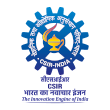FAQ
The CSIR efforts at Tsunami relief have been timely, multi-faceted and large. A number of CSIR laboratories rose above the occasion to offer their scientific and technical skills and resources to mitigate the sufferings of the survivors. The offers and initiatives include shelter, food, drinking water, and ongoing studies that in future would improve our knowledge and skills to deal with such disasters. CFTRI, Mysore, took upon itself the mission of providing food to the survivors. It undertook the largest production of instant food in its history. More than two tonnes of food was sent daily to the affected areas for about seven days to cater to about 50,000 to one lakh meals. Food items even took into account culinary preferences of the local people and the special nutritional requirements of children. CSMCRI, Bhavnagar, provided drinking water supply in the affected areas by reverse osmosis process. CBRI, Roorkee, rushed a team of scientists to the affected areas. It is poised to provide backup support in rehabilitating devastated areas by providing pragmatic solutions to the repair and retrofit of existing infrastructure. SERC, Chennai, has proposed to help the survivors in structural assessment of damaged buildings and would suggest repairs/remedial measures. NIO scientists are working on a system to detect earthquakes below the ocean floor. NGRI’s Seismological Observatory recorded the earthquake and its after-shocks. It continues to monitor the area and provides information so that appropriate action may be taken and loss to life and property minimised.
Saras is a 14-seater twin-engined turboprop aircraft fully pressurized for passenger comfort. It has a maximum speed of over 600 km/h and a maximum range of 1200 km. Its state-of-the-art avionics, electrical, environmental control and other systems make it a contemporary aircraft of the 21st century.
The Auto Fuel Policy drafted under the Chairmanship of Dr. R.A. Mashelkar has paved the way for laying Indian standards for auto emissions and thus moving towards meeting the global settings in the domain. The standards ‘Bharat II, III & IV’ will come into force in phases as per the road map evolved. Improvement in fuel quality is the prime need in addition to changes required in auto engines, use of catalytic converters, etc. Under an NMITLI supported programme, effort has been initiated to help improve fuel quality and a novel catalyst has been developed. The catalyst has remarkable efficiency for desulfurizing diesel, obtained from the first stage of an HDS unit with sulphur (S) content of about 2500 ppm to less than 50 ppm. It performs at the typical refinery process conditions, i.e., < 340º C and 40-bar pressure. The catalyst developed is even active at 30-bar pressure. The development would be of immense help in providing quality diesel as per Bharat III to IV emission standards. Efforts are on to identify a refinery to test the catalyst in plant environment
BioSuite Eighteen research institutes and three industries were brought together to develop the comprehensive, portable and versatile software package christened ‘BioSuite’. Led by TCS, the team has developed the software, which will serve as a multipurpose tool for carrying out diverse bioanalysis ranging from gene analysis to comparative genomics, pathway modeling to homology modeling and molecular visualization & manipulation to drug designing. The software has several unique features, which are not present in similar other packages available in the market. BioSuite comprises eight modules involving 114 sub-modules and 243 algorithms. SofComp The NMITLI project entitled, "Cost-effective Simple Office Computing (SofComp) platform to replace PC" sought to develop platform technology based on Linux. The Simple Office Computers (SofComp) are thus based on a System-on-Chip architecture with a high degree of integration and several innovative features.
Asthma A mission mode programme on asthma has been launched for finding a cure for this disease following the realization of CSIR’s role as a nodal player in the field due to the existing expertise in its allergy group and promise shown by its herbal medicine (Asmon) developed by the Indian Institute of Chemical Biology, Kolkata. Studies carried out by CSIR have already led to significant increase in the understanding of the disease viz., atopic nature of asthma, identification, purification and characterization of allergic proteins, identification of T-cell epitopes of allergens, development of in vitro screening procedure using human endothelial cell adhesion molecules, identification of the human lung surfactant proteins in respiratory disorders, identification of SNPs in few candidate genes for asthma, development and a mouse model of asthma. The future studies envisaged include an integrated, networked and focused mission aiming at (i) development of therapeutic modalities using SPD and SPA; reversal of TH2 and TH1, response identification of lead molecules by in vitro and in vivo model, (ii) a broad sample collection of affected population, validation of genes involved, studies on gene polymorphism, identification of molecular markers, interactions expressive genes with other genes, determination of the genetic basis of asthma. Psoriasis is one of the most common dermatological diseases affecting around 2 percent of the world population but its cause and pathogenesis are not clearly understood. Most importantly no preventive/curative therapy exists for psoriasis except the symptomatic management. Based on the traditional knowledge, the development of a single plant-based oral herbal formulation was initiated under NMITLI for making it globally acceptable. The project is being led by Lupin Laboratories as the industry partner. Extensive studies comprising fingerprinting, activity guided fractionation, efficacy studies, toxicology, safety pharmacology, pharmaco-kinetics and toxico-kinetics enabled the filing of an Investigational New Drug (IND) application for the first time in the country. The estimated market for psoriasis therapeutics is around 4 billion and the development will enable India to capture a significant part of the market. Latent Tuberculosis Worldwide, around two billion people are infected with M. tuberculosis. Nearly, 8 million new cases are added annually and the biggest burden is in South East Asia. Around 3 million deaths owing to tuberculosis (TB) are reported every year and India accounts for a substantial percentage. With the rampant Human Immunodeficiency Virus (HIV), TB is reaching almost epidemic proportions. It kills one in three people co-infected with HIV/AIDS. Furthermore, TB is a major barrier to economic development, costing India over Rs. 12,000 crore a year. Considering these aspects CSIR through the NMITLI scheme supported a project entitled “Latent M. tuberculosis: New targets, drug delivery systems and Bio-enhancers and therapeutics” in the year 2001. Significant success has been achieved in the project. An IND for a new pharmacophore for the treatment of tuberculosis has been filed. This is the first success achieved in developing a new tuberculosis therapeutic in the last 40 years globally. The molecule, Sudoterb, works through combination therapy (compatible with the present drugs), is less toxic, clears the total infection within two months and no recurrence has been observed. It fits well into the present four-drug therapy by replacing one or two drugs from the present cocktail. Some new drug targets have also been developed along with a novel drug delivery system.
As a leading S&T organization of a nation rich in marine bounty, CSIR is also investigating our oceans. An all India coordinated project ‘Drugs from the Sea’ funded by Department of Ocean Development, Government of India, and coordinated by the Central Drug Research Institute, Lucknow, is being conducted in collaboration with 10 participating laboratories for exploiting marine flora and fauna for development of drugs as well as herbal remedies. The programme covers all aspects of drug research including isolation of active molecules, their characterization and development. Several promising samples have been found.
Certainly! The Herbal Therapeutics programme of CSIR involves efforts to develop herbal preparations as therapeutics. These herbal preparations are being developed only after conducting all the appropriate studies, viz. standardization, biological activity validation, safety, efficacy and clinical studies. Products developed would be then introduced as therapeutics in the Indian and the foreign markets. The CSIR collaboration with the AVS and CCRUM is a major initiative in this direction.
The CSIR Programme on Bioactives is a mammoth network programme being coordinated by the R&D Planning Division (RDPD), CSIR. It engages 20 CSIR laboratories, 13 universities and three well-known organizations in the traditional system of medicine. It involves screening of Ayurvedic formulations, plants, fungi, microbes and insects against 14 disease areas including cancer, tuberculosis, filaria, malaria, ulcer, Parkinson’s and Alzheimer diseases, to identify new lead molecules. Work is being pursued in a well-coordinated manner with different dedicated groups carrying out well-defined tasks. For example, The Indian Institute of Integrative Medicine (previously known as RRL, Jammu) is the Nodal laboratory for investigation of all the Unani drugs. Its activities are to participate in and coordinate plant collection, authentication, and finger printing. It also participates in and coordinates the biological activities such as profiling of the extract to evaluate anticancer activity (in vitro cytotoxicity), and immunomodulatory and hepatoprotective (both in vivo and in vitro) activities of the samples prepared by the participating institutes.
You would be amazed to know about the many items of daily use that CSIR has helped develop. Its contribution extends to almost all fields of human activity, be it agriculture, health, defense, aerodynamics, genetic engineering and the development of India's first supercomputer. Eleven of the 14 new drugs developed in independent India are from CSIR. The entire list would be too long so here is merely a sample. Amul baby food, Nutan stove, Saheli a non-steroidal once-a-week oral contraceptive pill for women, E-mail for resistant malaria, Asmon, a herbal therapeutic for asthma, SARAS, a multi-role aircraft, Flosolver India's first parallel computer; Swaraj and Sonalika tractors, and the indelible ink that is the mark of a proud Indian voter, are gifts of CSIR to the nation. No wonder CSIR is recognized as one of the world's largest knowledge enterprises.
The basic salary for Scientist B or Group IV(1) is Rs. 8000-275-13500. And a senior Scientist i.e., Scientist G or Group IV (6) would be in the basic pay scale of Rs. 18400-500-22400.

 Pensioners Corner
Pensioners Corner Screen Reader Access
Screen Reader Access Skip to main content
Skip to main content

























